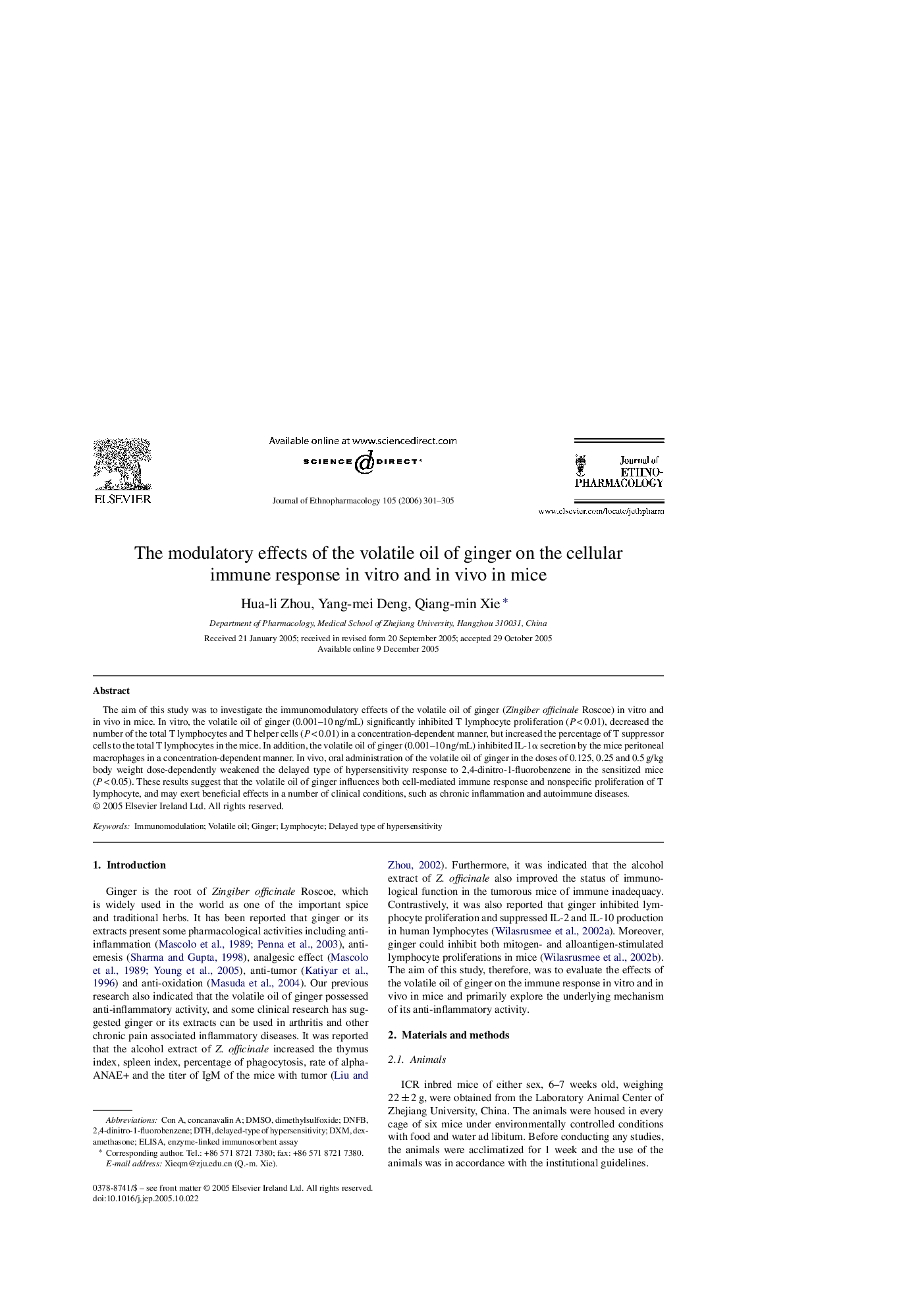| Article ID | Journal | Published Year | Pages | File Type |
|---|---|---|---|---|
| 2548394 | Journal of Ethnopharmacology | 2006 | 5 Pages |
The aim of this study was to investigate the immunomodulatory effects of the volatile oil of ginger (Zingiber officinale Roscoe) in vitro and in vivo in mice. In vitro, the volatile oil of ginger (0.001–10 ng/mL) significantly inhibited T lymphocyte proliferation (P < 0.01), decreased the number of the total T lymphocytes and T helper cells (P < 0.01) in a concentration-dependent manner, but increased the percentage of T suppressor cells to the total T lymphocytes in the mice. In addition, the volatile oil of ginger (0.001–10 ng/mL) inhibited IL-1α secretion by the mice peritoneal macrophages in a concentration-dependent manner. In vivo, oral administration of the volatile oil of ginger in the doses of 0.125, 0.25 and 0.5 g/kg body weight dose-dependently weakened the delayed type of hypersensitivity response to 2,4-dinitro-1-fluorobenzene in the sensitized mice (P < 0.05). These results suggest that the volatile oil of ginger influences both cell-mediated immune response and nonspecific proliferation of T lymphocyte, and may exert beneficial effects in a number of clinical conditions, such as chronic inflammation and autoimmune diseases.
